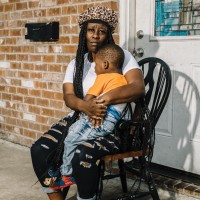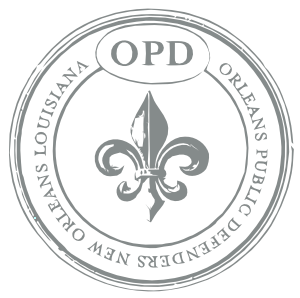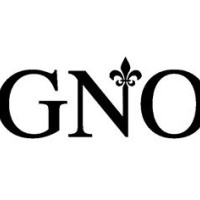OPD Files Motions to Dismiss Unconstitutional Charges and Attachments in Municipal Court

Last fall, a historic coordinated effort to resolve the outstanding warrants in New Orleans was brought to the New Orleans City Council. Led by Stand with Dignity and OPD, the Council unanimously voted for a resolution to waive fines and fees in these outstanding municipal cases and lift the attachments with Councilman Jason Williams acknowledging the cycle of poverty created when fines and fees are assessed without consideration to a defendant’s ability to pay, and the criminalization that occurs when warrants are issued for those who cannot pay.
“This is an important first step to begin removing the barriers for so many of our community members,” said OPD Supervising Attorney Lauren Anderson, who filed the motion. “For too long, court fines and fees have been a significant impediment to people being able to gain employment, maintain housing, or provide for their families. The added threat of arrest further deters their ability to access services and benefits, and simply harms our community.”
Will the Coronavirus Make Us Rethink Mass Incarceration?
 Community groups have pointed out the social costs of the prison system for decades. Now the pandemic has exposed its public-health risks.
Community groups have pointed out the social costs of the prison system for decades. Now the pandemic has exposed its public-health risks.
Read the full article here.
Expect delays for justice and pay cuts for Public Defenders, due to lack of funding and resources
Starting on April 15, Orleans Public Defenders began furloughing their leadership and management teams and the remain staff will be furloughed May 1.
“We shouldn’t have to sacrifice our constitution rights for public health,” said Derwyn Bunton, Chief Defender.
Unfortunately, that’s what is happening, due to the lack of funding. Orleans Public Defenders are projecting an $800,000 shortfall.
‘Public defenders are crucial in getting folks into court and arguing for their bond reduction for their out right release and for change in policy,” explained Bunton.
Their fear is the serious ramifications that come with the Covid-19 shut downs.
“What this does is crater our organization that when we come on the other side of this we are going to be in an immediate constitutional crisis. We won’t have enough resources to move cases. They will be stagnant and you can only prosecute as fast as you can defend.” reasoned Bunton.
The danger that brings, is the open cases that are in the system already will ‘die on the vine.”
“Those cases could also result in innocent people going to jail because we don’t have the resources to exonerate them to find the evidence to tell the district attorney and public that they didn’t do it,” said Bunton.
See the full interview at WGNO.
Orleans Public Defenders announce furloughs in face of decreased revenue due to coronavirus
The Orleans Public Defenders (OPD) announced on Monday that they have begun furloughing employees in the face of an anticipated $800,000 budget shortfall stemming from loss of revenue that comes from court fees and traffic tickets.
Money from court fees and traffic tickets account for about one-third of the office’s budget, according to its most recent annual audit. But with the courts closed due to coronavirus, and fewer traffic tickets being written following the Gov. John Bel Edwards’ stay at home order, those funding sources have diminished.
The furloughs will result in employees having their hours and pay cut between 10 and 30 percent based on salary, with higher salaried employees taking the larger cuts. Lindsey Hortenstine, a spokesperson for the public defenders, said that the furloughs would affect all staff that were not supported by grants or outside funding — about 67 employees.
According to a press release, furloughs began on April 15th for the leadership and management teams at OPD and will start on May 1 for the rest of the staff.
Read the full article at The Lens.
Louisiana public defenders fight to protect clients from coronavirus, even as their offices run out of money

The moment he heard about the first coronavirus case in New Orleans, Derwyn Bunton knew he had to realign his priorities. “I told my staff, ‘Y’all, this is going to get bad,’” he says. Bunton is the district defender for Orleans Parish, or the chief public defender for the city of New Orleans. After that first case, Bunton’s primary objective would be to depopulate the city’s jail, which could quickly become a viral time bomb.
Over the past month, the number of people in jail in New Orleans has dropped from 1,100 to 820, thanks largely to the efforts of Bunton’s staff.
Even as Bunton’s offices work to free people from the jail, arrests for low-level crimes have continued. The Louisiana Supreme Court has canceled jury trials in the state, but New Orleans courts are still holding hearings via teleconference. Bunton mentions one recent client who was arrested and spent a night in jail on a three-year-old trespassing charge. “Because of the statute of limitations, it wasn’t even prosecutable,” he says. “We had another client arrested for possession of a single Oxycodone tablet. Another for failure to return a rental car on time. We need to be limiting law enforcement’s interactions to serious crimes only, for the safety of everyone.”
Read the full article at Washington Post.
OPD Announces Furloughs Due to Plummeting User-Pay Revenue
FOR IMMEDIATE RELEASE: April 20, 2020
Projected $800,000 Shortfall and Plummet of User-Pay Revenue from COVID-19 Shutdowns Exacerbates Funding and Resource Inequities in New Orleans’ Criminal Legal System
New Orleans – Today, the Orleans Public Defenders Office (OPD) announced the implementation of anticipated furloughs due to a projected $800,000 funding shortfall. COVID-19 has shutdown New Orleans’ courts and criminal legal system, and with it, a significant source of revenue for the office. For nearly a decade, OPD has warned of the dangerous effects of Louisiana’s user-pay system. Today, COVID-19 has exacerbated that broken and inequitable funding structure and built on the backs of poor people.
“We did not make this decision lightly and we regret the problems this will undoubtedly cause for our clients and our community," said Chief Defender Derwyn Bunton, “but we simply don’t have enough money to operate at full capacity. We have been here before and have warned decision makers time and again about the potential fallout. No one should be surprised. What remains frustrating is, even now, we are the only entity within the criminal legal system in this situation. This will have serious ramifications. The inequities are stark and it is our poorest, most vulnerable and disenfranchised citizens who pay the price.”
Furloughs began April 15 for the Leadership and Management teams with remaining staff set to begin May 1. Because of the unique situation created by court closures and virtual proceedings, the furloughs will be less clear than in the prior crises of 2012 and 2015. But the courts should be prepared for immediate delays due to the lack of representation. Should furloughs continue once court resumes, court officials and stakeholders should expect reduced presence of OPD staff and continued delays. This will mean incarcerated defendants could remain unnecessarily detained when they could have otherwise been released on bond or into various diversion programs.
Mitigation plans also call for the elimination of our conflict panel contracts and subsequent refusal of those conflict cases. It also will cease all expert and expert fees utilized for case preparation. These two actions, coupled with the furloughs, will cause the ripple effects of constitutional crisis and have devastating impacts on thousands of poor New Orleanians.
In the month since COVID-19 began its spread throughout New Orleans, OPD immediately called on officials to prioritize the health and safety of those in the jail and begin work to depopulate the Orleans Justice Center as quickly and safely as possible. An ever-growing consortium of scientific and medical professionals have called jails and prisons across the country one of the most vulnerable populations to catastrophic public health crises due to COVID-19. OPD pushed for the closure of the courts to further protect defendants, staff and the public, as well as NOPD to cease certain arrests that unnecessarily increase exposure to the coronavirus during arrest and upon entering the jail. Today, the jail population is at its lowest in decades even as the number of staff and inmates who test positive for coronavirus increase.
OPD has long called on criminal justice stakeholders, local and state officials to establish stable, adequate and equitable funding sources for public defenders. While some progress has been made locally, OPD remains out-funded and out-resourced by the District Attorney at nearly five times the rate, despite representing more than 85% of all defendants in Orleans Parish. OPD implored the Mayor and City Council to establish equity between OPD and the DA while also reiterating the ramifications the longer these inequities remain.
OPD has remained in a pattern of service restrictions since the last funding crisis of 2015 and 2016, where we were forced to refuse cases. In 2012, OPD was forced to cut $1 million and a third of its staff. Inadequate, inequitable and unreliable funding and resources continue to compromise OPD’s ability to provide mandated legal services, brings higher costs in our criminal justice system, delays justice, and ultimately puts public safety at risk.
Should enough funding become available to eliminate the need for the furloughs, OPD staff will return to full court coverage and we will immediately notify stakeholders.


